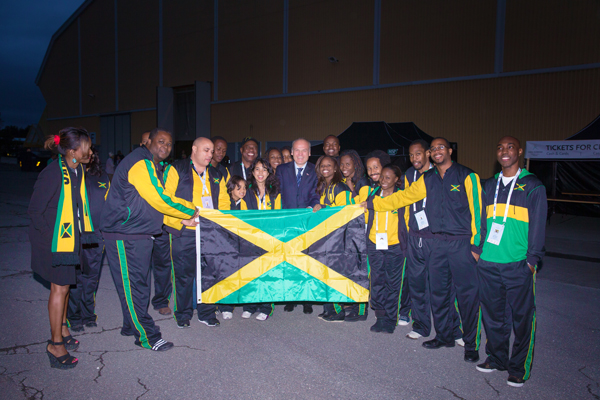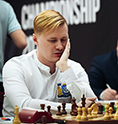"We Are One Family"
CFR President Andrey Filatov is ready to acquire monuments destined for removal in the United States.

President of the Chess Federation of Russia Andrey Filatov is ready to acquire monuments destined for removal in the United States.
Among the “undesirable” monuments are those to the U.S. President Theodore Roosevelt and the governor of Russian settlements in North America Alexander Baranov. The corresponding proposals have been submitted to the authorities of New York City and Sitka, AK, by Filatov’s Art Russe Foundation. If the acquisition is successfully negotiated, the monument to Theodore Roosevelt could be installed next to the monument to Sergei Witte, taking into account "the role of the U.S. president in the conclusion of the 1905 peace treaty with Japan on extremely favorable conditions for Russia." A monument to Alexander Baranov may become an exhibit in the Arctic Museum in St. Petersburg.
Preservation of cultural heritage is an important objective of the Art Russe Foundation. These monuments are of great historical significance for our country. Both the 26th President of the United States and the Governor of Russian settlements in the North America left their marks in Russia’s history. Therefore, Filatov considers it vital to preserve their statues for future generations. Some time ago, the CFR President, acting on a personal initiative, saved another monument from obliteration, having had the tombstone of the first-ever Russian-born world chess champion Alexander Alekhine restored at the Montparnasse cemetery in Paris, following its destruction by a hurricane.
Australian Claims Are Nonsensical
Establishing and preserving traditions is truly characteristic of chess. Chess knows no borders, and everyone is equal before chess. “We Are One Family”, as the unwavering FIDE slogan goes. Biannual chess Olympiads have been bringing together players from almost every country in the world, regardless of nationality or color of skin. Therefore, the debate initiated by the Australian Broadcasting Corporation (ABC) appears totally absurd, with the ancient game labeled racist because of its “white going first” rule. We discussed the matter with the 12th world chess champion Anatoly Karpov:
- "I think people engaged in this debate are simply jumping on the PR wagon, says Karpov. "We live in a time when everyone is seeking to self-promote on the back of any headline-making news. I believe that chess is the one sport that has always been racism-free. The FIDE slogan “We Are One Family” was adopted right at the time of the establishment of the Federation. It was in 1924, during the Olympiad in France. Soon, we will be celebrating the 100th anniversary of that event. Since then, the slogan has never been called into question".
Chess Has Always Stood Up Against Racism
- And yet we are seeing provocative statements. Despite the fact that the 15th world champion Vishwanathan Anand is Indian and one of the most revered GMs in the history of modern chess. Many say that there are no elite African chess players.
- Well, let's start with the fact that high-level chess requires schools, coaches and resources. African countries engaged in chess education and started receiving the necessary resources much later than others. A good coaching system also takes years to build and requires chess coaches and professionals. However, chess on the continent has been developing dynamically over the past years, to the point that even mass audience chess-related movies are being made there. Take the story of Phiona Mutezi from Uganda, who, driven by ambition and talent, made her way into big chess despite her illiteracy. It is an inspiring example for everyone!
- Did you participate in any tournaments in Africa?
- Of course. I’ve been to South Africa. There I headed a committee in support of free elections, just before the victory of Nelson Mandela. And here is an interesting fact: the only manifestation of racism in chess was in South Africa and Southern Rhodesia, where in the 70s chess clubs were organized on a racial basis. And that is precisely why the chess federations of South Africa and Southern Rhodesia were excluded from FIDE in 1977. As you can see, it is quite the opposite: chess has always stood up against racism.
By Anatoli Kuragin






















